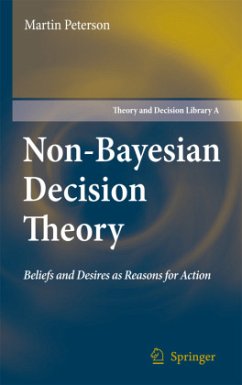
Bayesian Epistemology
Versandkostenfrei!
Versandfertig in 1-2 Wochen
127,99 €
inkl. MwSt.

PAYBACK Punkte
64 °P sammeln!
Probability theory is increasingly important to philosophy. Bayesian probabilistic models offer us ways of getting to grips with fundamental problems about information, coherence, reliability, confirmation, and testimony, and thus show how we can justify beliefs and evaluate theories. Bovens and Hartmann provide a systematic guide to the use of probabilistic methods not just in epistemology, but also in philosophy of science, voting theory, jurisprudence, and cognitive psychology.












